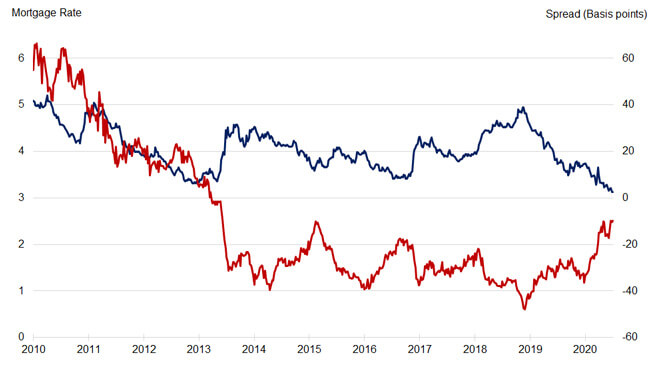Browsing the Jumbo Funding Landscape: Important Insights for First-Time Homebuyers
Browsing the intricacies of jumbo loans offers a distinct set of difficulties for newbie homebuyers, particularly in an evolving real estate market. Understanding the important eligibility requirements and possible advantages, together with the disadvantages, is essential for making educated choices. In addition, developing a solid financial approach can substantially enhance your prospects.
Comprehending Jumbo Fundings

Because jumbo lendings are not backed by government-sponsored entities, they lug different underwriting standards and require more thorough monetary paperwork. This distinction can bring about greater passion prices compared to standard loans, provided the increased risk to lending institutions. Nonetheless, jumbo loans additionally supply special benefits, such as the capacity to finance higher-value buildings and potentially much more flexible terms.
Newbie homebuyers need to likewise know that safeguarding a jumbo loan usually demands a bigger deposit, normally ranging from 10% to 20%. Furthermore, borrowers are typically anticipated to demonstrate strong credit reliability and a stable earnings to certify. When checking out big loan choices in their pursuit of homeownership., understanding these subtleties can equip new property buyers to make educated decisions.
Qualification Requirements
Protecting a big finance requires meeting particular eligibility needs that differ substantially from those of traditional car loans. Unlike standard loans, which are often backed by government-sponsored entities, jumbo loans are not insured or guaranteed, resulting in stricter criteria.
One primary demand is a greater credit report. Lenders usually anticipate a minimum score of 700, although some might permit lower scores under certain conditions (jumbo loan). Additionally, debtors must show a robust financial profile, that includes a reduced debt-to-income (DTI) ratio, generally no greater than 43%. This makes certain that consumers can manage their regular monthly repayments alongside other economic commitments.
Furthermore, most lending institutions call for substantial paperwork, consisting of evidence of earnings, possession statements, and income tax return for the previous two years. A significant deposit is additionally vital; while conventional car loans may enable deposits as reduced as 3%, jumbo fundings frequently demand a minimum of 20%, relying on the lender and the funding quantity.

Benefits of Jumbo Lendings
For lots of novice buyers, jumbo fundings use unique benefits that can promote the trip toward homeownership. One of the key benefits is the capacity to fund residential properties that exceed the adhering car loan restrictions established by government-sponsored entities. This adaptability enables customers to access a broader variety of high-value residential or Recommended Site commercial properties in competitive realty markets.
Furthermore, jumbo finances commonly come with eye-catching rate of interest prices that can be less than those of conventional finances, specifically for customers with solid credit rating profiles. This can cause substantial cost savings over the life of the finance, making homeownership extra inexpensive. Additionally, big financings normally enable higher financing quantities without the demand for personal mortgage insurance coverage (PMI), which can even more lower month-to-month repayments and total costs.

Prospective Drawbacks
Several potential property buyers might find that big lendings included significant downsides that necessitate cautious consideration. One of the main concerns is the rigid credentials standards. Unlike conforming financings, jumbo lendings commonly need greater credit rating scores, frequently going beyond 700, and considerable income paperwork, making them much less accessible for some consumers.
Additionally, big financings typically include greater rate of interest compared to traditional car loans, which can cause enhanced month-to-month settlements and overall borrowing expenses. This costs might be specifically challenging for first-time homebuyers who are currently navigating the economic intricacies of buying a home.
An additional remarkable drawback is the larger deposit need. Lots of lending institutions anticipate a minimum deposit of 20% or more, which can posture a challenge for buyers with limited financial savings. Additionally, the lack of government support for big finances brings about less positive conditions, enhancing the danger for lending institutions and, as a result, the borrowing costs for homeowners.
Finally, market changes can substantially affect the resale value of premium buildings financed with jumbo car loans, adding a component of monetary changability that newbie property buyers Extra resources might locate daunting.
Tips for First-Time Homebuyers
Browsing the complexities of the homebuying procedure can be frustrating for new customers, especially when considering big financings (jumbo loan). To simplify this journey, sticking to some key methods can make a substantial difference
First, inform yourself on jumbo financings and their particular needs. Comprehend the various borrowing criteria, including credit history, debt-to-income ratios, and deposit assumptions. Commonly, a minimal credit report of 700 and a deposit of at least 20% are important for approval.
Second, engage with a well-informed home loan specialist. They can supply understandings customized to your monetary circumstance and aid you navigate the ins and outs of the big loan landscape.
Third, take into consideration pre-approval to reinforce your getting position. A pre-approval letter signals to sellers that you are a major customer, which can be useful in competitive markets.
Lastly, do not ignore the relevance of budgeting. Aspect in all prices connected with homeownership, including real estate tax, upkeep, and homeowners' insurance policy. By adhering to these ideas, first-time purchasers can approach the jumbo lending procedure with higher self-confidence and clarity, enhancing their possibilities of effective homeownership.
Final Thought
In verdict, navigating the jumbo funding landscape calls for a comprehensive understanding of eligibility requirements, benefits, and possible downsides. Eventually, comprehensive prep work and education pertaining to big fundings can lead to even more educated decision-making in the homebuying process.
When browsing the intricacies of the real estate market, understanding big lendings is important for newbie buyers intending for residential properties that go beyond traditional financing limits. Jumbo finances are non-conforming financings that normally surpass the adhering loan limitation set by the Federal Housing Finance Firm (FHFA)In addition, jumbo car loans imp source frequently come with appealing rate of interest prices that can be reduced than those of standard lendings, especially for borrowers with solid credit score profiles. Big car loans commonly allow for greater car loan quantities without the requirement for personal home loan insurance coverage (PMI), which can additionally decrease total expenses and monthly settlements.
Unlike adapting financings, jumbo car loans commonly require greater credit rating ratings, commonly going beyond 700, and significant revenue documentation, making them much less accessible for some consumers.